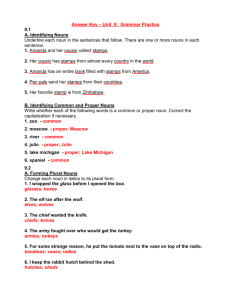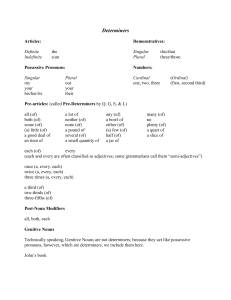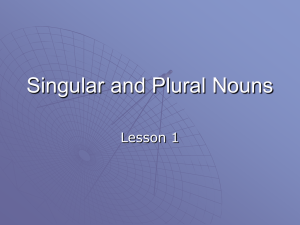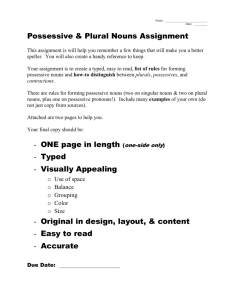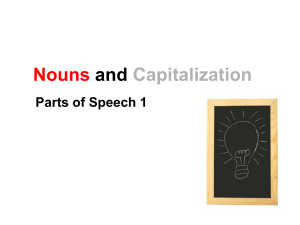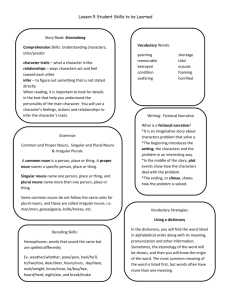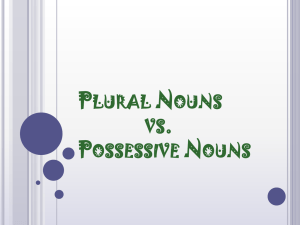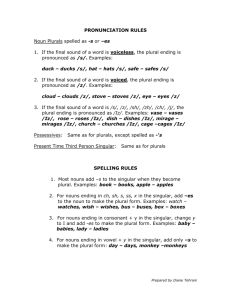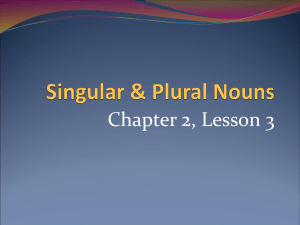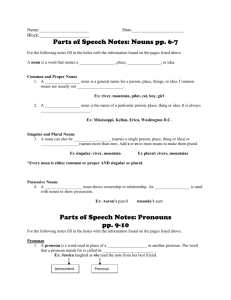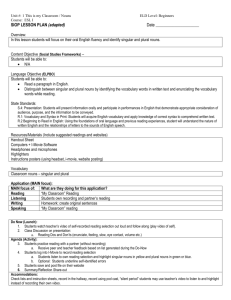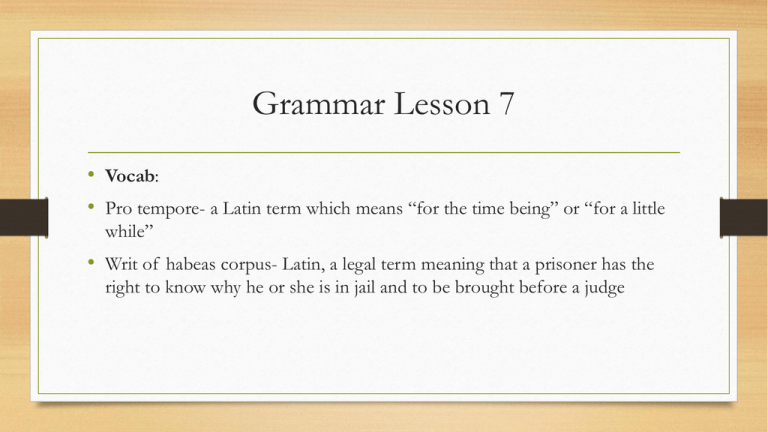
Grammar Lesson 7
• Vocab:
• Pro tempore- a Latin term which means “for the time being” or “for a little
while”
• Writ of habeas corpus- Latin, a legal term meaning that a prisoner has the
right to know why he or she is in jail and to be brought before a judge
Singular, Plural, Compound, and Possessive
Nouns/ Noun Gender
• Singular or plural: nouns are either singular or plural
• Singular noun: names only one person, place, or thing
• Plural noun: names more than one person, place, or thing
Compound and Possessive
• Compound nouns: made up of two or more words, sometimes written as
one word (classroom), often we write them as two words (snow tire), some
are hyphenated (brother-in-law)
• Possessive nouns: tell “who” or “what” owns something, can be singular or
plural, have an apostrophe and an s added to them (Sam’s)
• Usually only an apostrophe is added to plural nouns when they end with the
letter s (elephants’)
Noun Gender
•
•
•
•
•
•
We also group nouns according to gender
In English, there are four genders:
Masculine- uncle, brother, buck
Feminine- aunt, sister, doe
Indefinite (either sex)- sibling, horse, deer
Neuter (no sex)-socks, desk, bicycle
Grammar Lesson 8
• Vocab:
• Common- means “shared”
• Mutual- means “reciprocal”
Future Tense
•
•
•
•
•
Refers to action that has not yet occurred
Usually formed with the helping verbs shall or will
With the pronouns I and we, the use of shall is preferable in formal writing
Examples: He will serve. I shall vote.
In informal writing, the helping verb shall is sometimes used with pronouns
other than I or we in order to show strong emotion or to imply a threat or
command. (You shall wear your seat belt in the car.)
Grammar Lesson 9
•
•
•
•
Vocab:
Hospes- Latin word meaning guest
Inhospitable- means unfriendly, uninviting, or unwelcome
Hospice- a place or program in which pilgrims, strangers, or the terminally ill
find shelter, rest, or treatment
Capitalization: Pronoun I, Poetry, Titles,
Outlines, Quotations
• Pronoun I: always capitalized no matter where it is placed in the sentence
• First word in a line of poetry: the first words of each line in most poetry
are usually capitalized; however some poets, for effect, purposely do not
capitalize the first words of every line of their poetry
Titles
•
•
•
•
•
•
Titles require special capitalization, in titles we capitalize:
The first and last words
All verbs (action or being words)
All other words in the title except certain short words
A preposition with five or more letters (such as outside, underneath, between)
Unless located first or last in the title, words like a, an, and, then, but, or, for and
nor do not need a capital letter
Outlines and Quotations
• Outlines: require capital letters for the Roman numerals and for the letters
of the first major topics, we also capitalize the first letter of the first word in
the outline
I. The House of Representatives
A. Representation by population
B. Members serve two years
• Quotations: we capitalize the first word of a dialog quotation (Freddy asked,
“Have you seen him?”)


